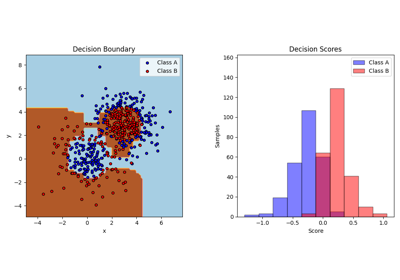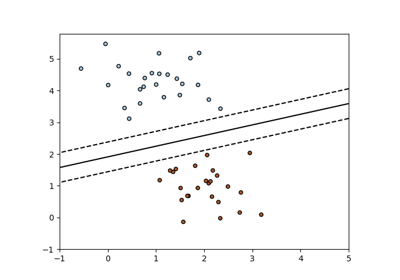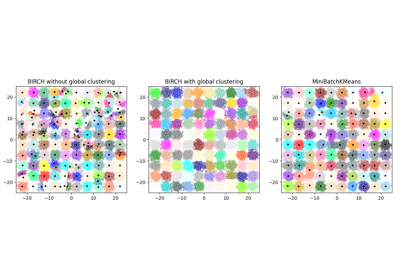Note
Go to the end to download the full example code or to run this example in your browser via JupyterLite or Binder
Plot randomly generated classification dataset#
This example plots several randomly generated classification datasets. For easy visualization, all datasets have 2 features, plotted on the x and y axis. The color of each point represents its class label.
The first 4 plots use the make_classification with
different numbers of informative features, clusters per class and classes.
The final 2 plots use make_blobs and
make_gaussian_quantiles.
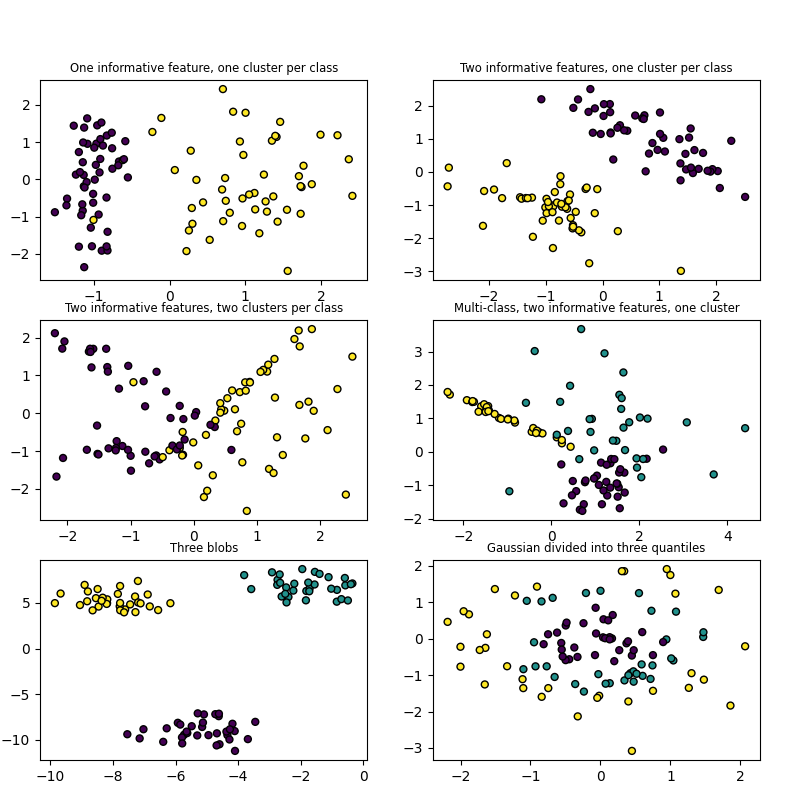
import matplotlib.pyplot as plt
from sklearn.datasets import make_blobs, make_classification, make_gaussian_quantiles
plt.figure(figsize=(8, 8))
plt.subplots_adjust(bottom=0.05, top=0.9, left=0.05, right=0.95)
plt.subplot(321)
plt.title("One informative feature, one cluster per class", fontsize="small")
X1, Y1 = make_classification(
n_features=2, n_redundant=0, n_informative=1, n_clusters_per_class=1
)
plt.scatter(X1[:, 0], X1[:, 1], marker="o", c=Y1, s=25, edgecolor="k")
plt.subplot(322)
plt.title("Two informative features, one cluster per class", fontsize="small")
X1, Y1 = make_classification(
n_features=2, n_redundant=0, n_informative=2, n_clusters_per_class=1
)
plt.scatter(X1[:, 0], X1[:, 1], marker="o", c=Y1, s=25, edgecolor="k")
plt.subplot(323)
plt.title("Two informative features, two clusters per class", fontsize="small")
X2, Y2 = make_classification(n_features=2, n_redundant=0, n_informative=2)
plt.scatter(X2[:, 0], X2[:, 1], marker="o", c=Y2, s=25, edgecolor="k")
plt.subplot(324)
plt.title("Multi-class, two informative features, one cluster", fontsize="small")
X1, Y1 = make_classification(
n_features=2, n_redundant=0, n_informative=2, n_clusters_per_class=1, n_classes=3
)
plt.scatter(X1[:, 0], X1[:, 1], marker="o", c=Y1, s=25, edgecolor="k")
plt.subplot(325)
plt.title("Three blobs", fontsize="small")
X1, Y1 = make_blobs(n_features=2, centers=3)
plt.scatter(X1[:, 0], X1[:, 1], marker="o", c=Y1, s=25, edgecolor="k")
plt.subplot(326)
plt.title("Gaussian divided into three quantiles", fontsize="small")
X1, Y1 = make_gaussian_quantiles(n_features=2, n_classes=3)
plt.scatter(X1[:, 0], X1[:, 1], marker="o", c=Y1, s=25, edgecolor="k")
plt.show()
Total running time of the script: (0 minutes 0.288 seconds)
Related examples
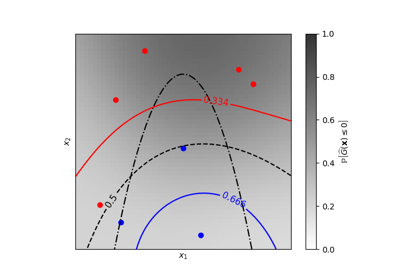
Iso-probability lines for Gaussian Processes classification (GPC)
Iso-probability lines for Gaussian Processes classification (GPC)
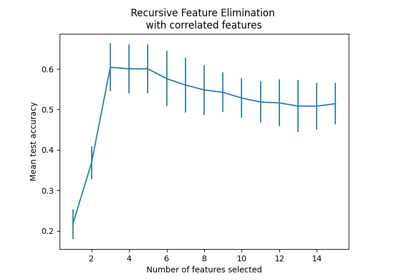
Recursive feature elimination with cross-validation
Recursive feature elimination with cross-validation

